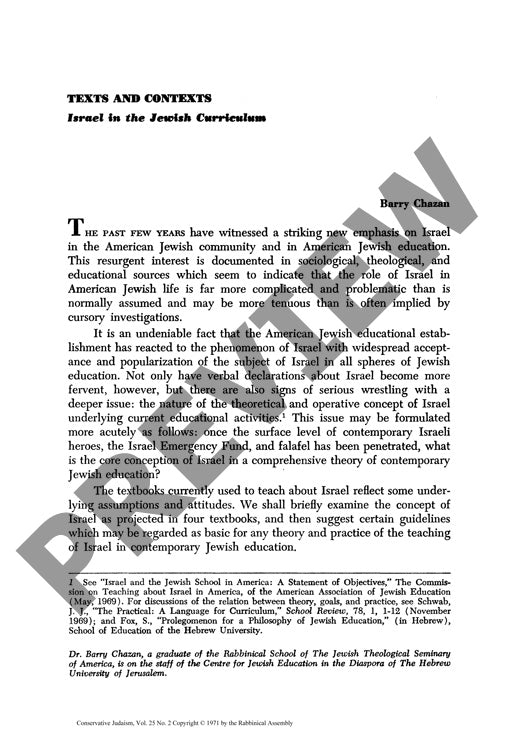Texts and Contexts Israel in the Jewish
Couldn't load pickup availability
Abstract This study examines the conceptual foundations and pedagogical approaches to teaching about Israel in American Jewish educational curricula through a critical analysis of four representative textbooks. Using textual analysis methodology, the research identifies three primary pedagogical orientations: secular neutrality, which treats Israel as a contemporary nation-state comparable to other countries; historical continuity, which emphasizes Zionism as an extension of Jewish historical development; and religious ideology, which positions Israel as integral to contemporary American Jewish identity. The analysis reveals that current educational materials present Israel through limited frameworks emphasizing its exotic characteristics, historical significance, and humanitarian achievements, while failing to establish its essential role in Jewish existence. The study identifies six theoretically inadequate justifications commonly employed in Jewish education, including conceptualizing Israel merely as a Jewish homeland, refugee haven, or social experiment. Key findings indicate that existing curricula lack coherent theoretical foundations linking Israel to comprehensive Jewish identity formation. The research concludes that effective Israel education requires integration within a broader conception of Judaism as a religious civilization, wherein Israel serves as the primary contemporary expression of autonomous Jewish development. The study recommends prioritizing the development of theoretically grounded educational materials over technical curriculum modifications, suggesting that Israel instruction should function as a focal point for coherent Jewish educational programming rather than as supplementary content.

More Information
-
Physical Description
-
Publication Information
Published
ISBN
-
Publication Credits
Barry Chazan

